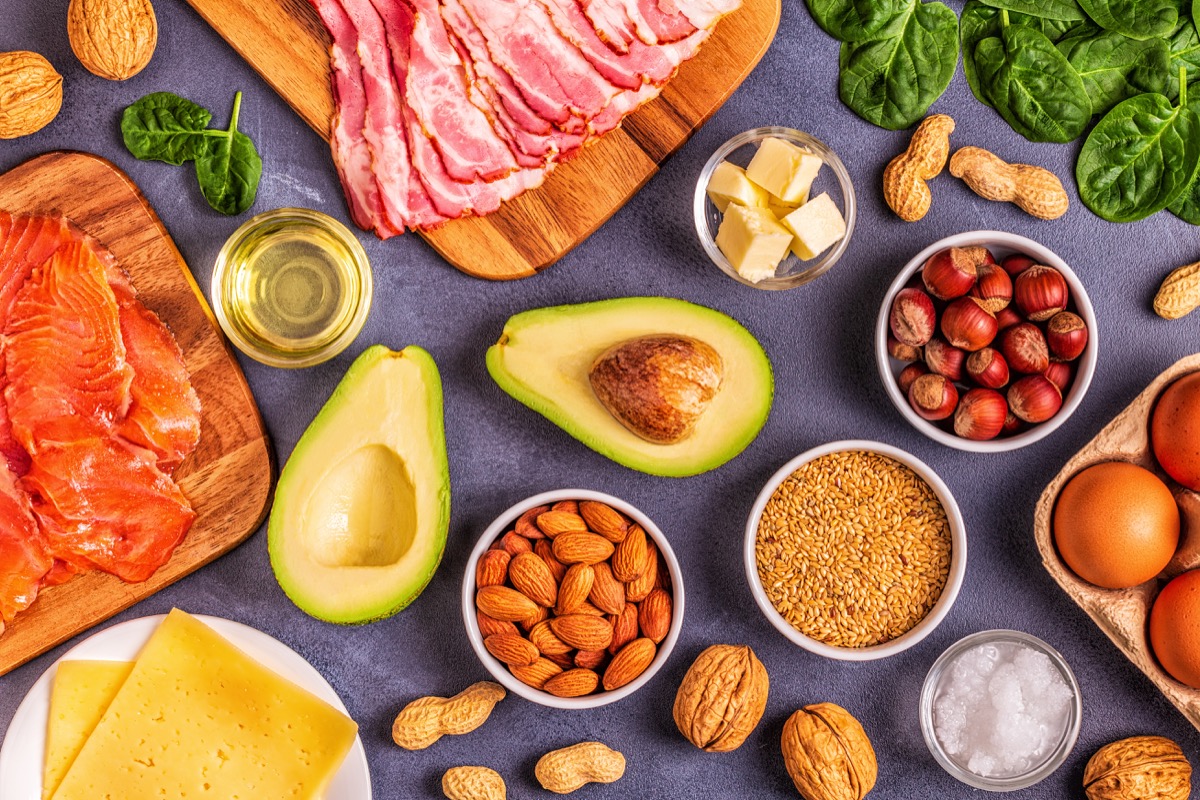A new study, published in March in the Journal of Steroid Biochemistry and Molecular Biology, analyzed sex hormone levels in 206 healthy men and compared them in terms of what they ate, whether they were high-fat or low-fat diets. What they found was that 10 to 15 percent of the men studied saw a decrease in testosterone levels while on a low-fat diet. “Low-fat diets appear to decrease testosterone levels in men, but further randomised controlled trials are needed to confirm this effect,” the study authors concluded. Despite the lowered testosterone levels, they were still in the normal range. The dip was particularly true of men with European ancestry, who “may experience a greater decrease in testosterone,” the authors said. And for more up-to-date health news delivered straight to your inbox, sign up for our daily newsletter. According to the American Urology Association (AUA), low blood testosterone (Low-T) is less than 300 nanograms per deciliter (ng/dL). Scientists have found that low testosterone levels are connected to erectile dysfunction, reduced bone mass, diminished energy and sex drive, mood swings, sleeping problems, reduced semen, hair loss, increased body fat, hot flashes, reduced testicle size, and changes in cognition, according to Medical News Today. Abraham Morgentaler, MD, founder of Men’s Health Boston, told Harvard Health Publishing that “many physicians tend to dismiss these ‘soft symptoms’ as a normal part of aging, but they are often treatable and reversible by normalizing testosterone levels.“ae0fcc31ae342fd3a1346ebb1f342fcb Even though women don’t need as much testosterone, their bodies still produce the hormone in small amounts. When women have very low levels of testosterone in their bodies, they are likely to have irregular or missed periods, fertility problems, weak bones, decreased sex drive, and vaginal dryness, Medical News Today explains. According to the AUA, the technical term for those who have low testosterone levels is called testosterone deficiency syndrome (TD). “Data suggest that overall about 2.1 percent (about 2 men in every 100) may have TD. As few as 1 percent of younger men may have TD, while as many as 50 percent of men over 80 years old may have TD,” the AUA notes. The organization also explains that men who have diabetes and those who are overweight are more likely to have lower testosterone levels. And for more on how to keep your sex life healthy, You’ll Have More Sex If You Do This for an Extra Hour a Day, Study Says. The two things that generally improve your health can help with your testosterone levels too. “There are natural ways to raise testosterone, including exercise and weight loss,” Philip Werthman, MD, director of the Center for Male Reproductive Medicine & Vasectomy Reversal in Los Angeles, told WebMD in 2015. Richard Jadick, DO, a urologist with Piedmont Healthcare in Newnan, Georgia, says on the company’s site that “research has shown that lifting heavier weights is the best form of exercise to boost testosterone. As muscle mass increases, it will trigger the body to produce more testosterone.” If you’ve noticed the signs of lowered testosterone in your body, and working out or losing weight doesn’t seem to help, doctors may suggest hormone replacement therapy, which involves getting more testosterone into your system via patch, gel, injection, or pills. And for more on how the average person in the U.S. feels about their sex life these days, know that 73 Percent of People Wish They Had More of This Kind of Sex, Survey Shows.



